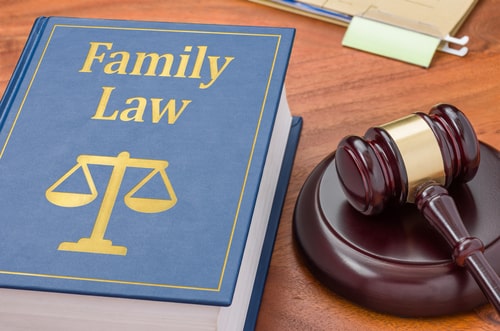Recent Blog Posts
When Your Teen is Charged With Vandalism
 In Illinois, vandalism is characterized as the intentional damage, defacement, or destruction of someone else’s property without permission. Acts of vandalism include graffiti, window breaking, tire slashing, and other forms of damage. It is a criminal offense that carries significant legal repercussions, particularly for minors. If your teen is faced with a vandalism charge, an Illinois lawyer can possibly help.
In Illinois, vandalism is characterized as the intentional damage, defacement, or destruction of someone else’s property without permission. Acts of vandalism include graffiti, window breaking, tire slashing, and other forms of damage. It is a criminal offense that carries significant legal repercussions, particularly for minors. If your teen is faced with a vandalism charge, an Illinois lawyer can possibly help.
Penalties for Juvenile Vandalism
When a teen under the age of 18 is charged with vandalism in Illinois, he will typically face proceedings in the juvenile court system rather than adult criminal court. However, this does not mean the charges should be taken lightly. Depending on the extent of the damage and the teen’s prior record, penalties may include:
- Restitution: Your teen may be required to pay for the damage he caused.
Understanding Uncontested Divorce in Illinois
 Couples who can reach mutually agreeable terms for divorce have the option of ending their marriage in a much smoother, less acrimonious way. When you have what is called an uncontested divorce, you get to cut out a lot of the time and money spent typically on a divorce process. Not everyone is eligible for or interested in an uncontested divorce. This article will explain what is involved in an uncontested divorce, and if it interests you, a skilled Will County, IL divorce lawyer can provide more information specific to your case.
Couples who can reach mutually agreeable terms for divorce have the option of ending their marriage in a much smoother, less acrimonious way. When you have what is called an uncontested divorce, you get to cut out a lot of the time and money spent typically on a divorce process. Not everyone is eligible for or interested in an uncontested divorce. This article will explain what is involved in an uncontested divorce, and if it interests you, a skilled Will County, IL divorce lawyer can provide more information specific to your case.
What is Uncontested Divorce?
When a couple gets a divorce, they need to draft agreements on all the ways their once-merged lives will go on separately once the marriage is over. If they have children, the list of things they need to agree about is even longer. If a couple can come up with a settlement that addresses every aspect necessary, including spousal support, parental custody, the division of assets, etc., they can have what is known as an uncontested divorce. They need to draft their own settlement proposal and then bring it to the court for approval by a judge.
What Happens a Minor Is Caught Shoplifting in Illinois?
 Sometimes a kid steals something because they need it and cannot afford to buy it. Sometimes they steal for the thrill they might get. Whatever the case may be, stealing is against the law and if you are caught doing it, you can face serious consequences. Anyone under the age of 18 is considered a minor in America and is typically tried in juvenile court. However, even if they are not tried as an adult, they can face similar penalties and charges. This article will explain what happens when a juvenile is caught shoplifting, but if this has happened to your son, you should speak with an experienced Will County, IL juvenile defense attorney who can provide more information specific to your case and help defend him in court.
Sometimes a kid steals something because they need it and cannot afford to buy it. Sometimes they steal for the thrill they might get. Whatever the case may be, stealing is against the law and if you are caught doing it, you can face serious consequences. Anyone under the age of 18 is considered a minor in America and is typically tried in juvenile court. However, even if they are not tried as an adult, they can face similar penalties and charges. This article will explain what happens when a juvenile is caught shoplifting, but if this has happened to your son, you should speak with an experienced Will County, IL juvenile defense attorney who can provide more information specific to your case and help defend him in court.
What Is Considered Shoplifting?
It is commonly known that when you want something you see in a store, you can pay for it and then you can take it. Shoplifting, legally referred to as retail theft, is when you take merchandise from a store or some other retail establishment without paying for it.
Understanding the Ways You Can Pay Child Support in Illinois
 When it comes to child support payments in Illinois, understanding the various payment options available is crucial for both parents involved. From wage withholding to electronic payments and mailed payments, there are several methods to ensure timely and consistent support for children. If child support is relevant in your divorce proceedings, a dedicated attorney can ensure you understand your rights and options.
When it comes to child support payments in Illinois, understanding the various payment options available is crucial for both parents involved. From wage withholding to electronic payments and mailed payments, there are several methods to ensure timely and consistent support for children. If child support is relevant in your divorce proceedings, a dedicated attorney can ensure you understand your rights and options.
At Reeder & Brown, P.C., our compassionate legal counselors have immense knowledge and experience in matters related to family law and divorce in Illinois. Regardless of what legal goals you are looking to accomplish, Attorney Brown and Attorney Reeder are ready to provide you with the representation you need and deserve.
How Illinois Property Division is Handled
 Illinois is an equitable distribution state and divides marital assets accordingly during the divorce process. To further understand how Illinois handles property division after a divorce, an experienced attorney will have the insight and knowledge you will need.
Illinois is an equitable distribution state and divides marital assets accordingly during the divorce process. To further understand how Illinois handles property division after a divorce, an experienced attorney will have the insight and knowledge you will need.
Equitable Distribution
Equitable distribution is the method used to decide how marital assets are divided in the state of Illinois. Instead of dividing everything in a 50/50 split between spouses, Illinois chooses to divide things equitably and fairly. Many things can factor into how assets are divided including:
-
Any businesses owned between the parties
-
How much each spouse contributed to the ownership of assets
-
Whether either spouse is responsible for an outsized accumulation of debt unrelated to the marriage
The Effect of Adultery on Illinois Divorce
 Adultery. Infidelity. Cheating. No matter how you choose to say it, the result never feels good when you are on the receiving end of it. When one partner cheats on another, it can seriously affect them both mentally and emotionally. It can also cripple a marriage leading to divorce as the outcome. But does your partner’s adultery have any effect on Illinois divorce proceedings? Understanding what, if anything, the act of adultery has on a divorce will help you determine your next steps during the process. For a more in-depth look into everything you will want to know about the divorce process, you should seek out the advice of a reputable divorce attorney.
Adultery. Infidelity. Cheating. No matter how you choose to say it, the result never feels good when you are on the receiving end of it. When one partner cheats on another, it can seriously affect them both mentally and emotionally. It can also cripple a marriage leading to divorce as the outcome. But does your partner’s adultery have any effect on Illinois divorce proceedings? Understanding what, if anything, the act of adultery has on a divorce will help you determine your next steps during the process. For a more in-depth look into everything you will want to know about the divorce process, you should seek out the advice of a reputable divorce attorney.
How Adultery Affects Illinois Divorce
Emotions tend to run high after learning that your spouse engaged in extramarital affairs with someone else. It is not uncommon to look for retribution in any way you can for this betrayal. You could benefit from therapy or a legal discussion with an attorney to determine what you want to do next. The likelihood of divorce following an act of infidelity is quite high.
Does a Non-Biological Father Need to Pay Child Support?
 Whether or not a father is legally obligated to pay child support for his non-biological child will depend on a few factors:
Whether or not a father is legally obligated to pay child support for his non-biological child will depend on a few factors:
- He signed a Voluntary Acknowledgment of Paternity (VAP)
- The father legally adopted the child as his own
- He was the presumed father at the time of conception or birth
These factors do not determine who will pay child support but that the father can now be legally obligated to do so if the court deems it necessary following a divorce or legal separation. The laws of paternity and child support can get complex, and it is often best to seek the help of an experienced attorney when you need your questions answered.
Voluntary Acknowledgment of Paternity (VAP)
Primarily used to determine paternity in unwed couples, a VAP is a legal document filed with the Illinois Department of Healthcare and Family Services (HFS) to be able to add the father’s name to the birth certificate. A VAP requires both parents to sign and date the form and have it witnessed by an individual who is 18 years of age or older and is not listed on the form. The signing of a VAP can take place at any time, and parents can obtain one at:
Everything You Need in a Parenting Plan
 Parenting plans are a great way for divorcing parents to decide how to co-parent their children once the proceedings are finalized. It can help keep the courts out of the decision-making and allow the parents to create a cooperative and flexible way to care for their children. For help with a parenting plan or other issues concerning divorce and family law, it is best to consult an attorney with experience in these matters.
Parenting plans are a great way for divorcing parents to decide how to co-parent their children once the proceedings are finalized. It can help keep the courts out of the decision-making and allow the parents to create a cooperative and flexible way to care for their children. For help with a parenting plan or other issues concerning divorce and family law, it is best to consult an attorney with experience in these matters.
Mandatory Inclusions in Your Parenting Plan
To better determine the allocation of parental responsibilities following a divorce, a parenting plan must include certain things concerning the child's future well-being. The mandatory inclusions in a parenting plan are:
Are Civil Union Couples Still Eligible for Divorce in Illinois?
 Civil unions are very similar to marriages, and, as such, are eligible for dissolution in Illinois. Couples wishing to end their union must seek dissolution in an Illinois court just as they would a traditional marriage. Since 2011, Illinois law has decreed that civil unions share the same benefits as a marriage and divorce. A skilled divorce attorney can help navigate the complexities of civil unions and determine your best course of action in the event of divorce.
Civil unions are very similar to marriages, and, as such, are eligible for dissolution in Illinois. Couples wishing to end their union must seek dissolution in an Illinois court just as they would a traditional marriage. Since 2011, Illinois law has decreed that civil unions share the same benefits as a marriage and divorce. A skilled divorce attorney can help navigate the complexities of civil unions and determine your best course of action in the event of divorce.
What Are the Requirements for a Civil Union?
For a legally recognized civil union to take place in Illinois, it requires a couple obtain a civil union license. The couple must appear together at a County Clerk’s office to fill out and sign an application in person. The couple must have valid IDs and pay the $60 license fee. After processing, the civil union license goes into effect the day after it is issued and remains valid for up to 60 days.
How Do I Prove Paternity in Illinois?
 Paternity is the legal relationship between a father and his child. It is important to establish paternity for several reasons, including:
Paternity is the legal relationship between a father and his child. It is important to establish paternity for several reasons, including:
-
To determine a child's legal rights and responsibilities, such as the right to inherit property, receive child support, and have visitation rights
-
To obtain a birth certificate for a child that lists the father's name
-
To ensure that the father is held accountable for his financial obligations to his child
There are a few ways to prove paternity in Illinois. The best way will depend on the individual circumstances. If you are unsure about how you should establish paternity, your best course of action is to consult with an attorney.
Voluntary Acknowledgment of Paternity (VAP)
The most common way to establish paternity in Illinois is through a Voluntary Acknowledgment of Paternity (VAP). The VAP is a form that is signed by the mother and the alleged father. It is notarized and filed with the Illinois Department of Healthcare and Family Services (HFS).





